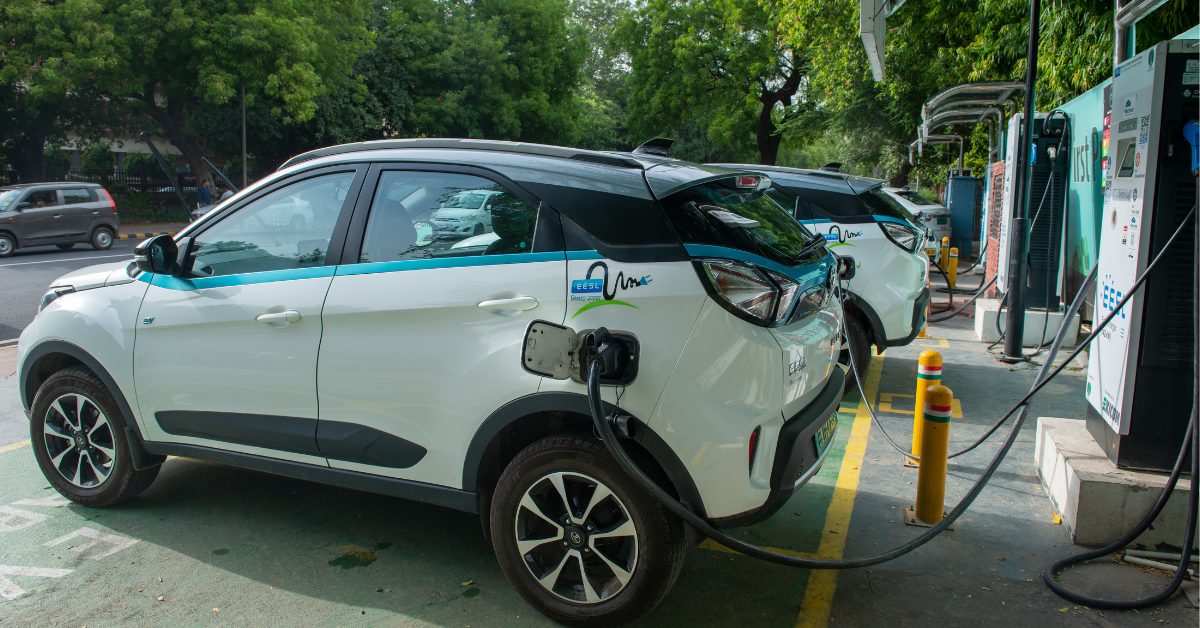Rajasthan EV policy, which was approved in May this year, came into effect on September 1 after the government released a notification in this regard on August 31
The state government had approved a one-time contribution on EV purchase and an additional budget provision of INR 40 Cr for reimbursement of SGST to EV buyers
A transport department official said that funds from the state governments have been received and all pending dues related to EV purchases in this financial year will be cleared soon
Rajasthan has become the latest addition to the list of states to have a dedicated electric vehicle (EV) policy to encourage adoption of such vehicles. The western state’s EV policy came into effect on Thursday (September 1).
According to a PTI report, a transport department official said that a notification in this regard was issued on August 31.
Rajasthan Chief Minister Ashok Gehlot announced the EV policy during the budget for 2019-20, and the draft policy was approved in May this year.
Under the Rajasthan Electric Vehicle Policy (REVP), the state government has sanctioned a fund of INR 40 Cr for contribution to the purchase of EVs. The policy is for a period of five years.
The state government had earlier approved a one-time contribution on EV purchase and an additional budget provision of INR 40 Cr for reimbursement of State Goods and Services Tax (SGST).
Under the policy, the government plans to reimburse SGST of INR 5,000 to INR 10,000 on purchase of two-wheeler EVs, while INR 10,000 to 20,000 will be reimbursed for three-wheeler EVs. The reimbursement amount will vary depending on the battery capacity of the vehicles.
“We have received funds from the state government and all pending dues related to electric vehicle purchase of this financial year will be cleared soon,” the news agency quoted transport commissioner K L Swami as saying.
Total grants of INR 18 Cr were given to EV buyers during the last financial year in 12 Regional Transport Office (RTO) areas of Rajasthan, the report said.
Besides, a grant amount of INR 5 Cr out of the INR 40 Cr fund will now be disbursed to 3,000 owners who purchased the EVs in the current fiscal year.
Strong Push For EVs In The Country
As per various reports, the growing and evolving policies around EVs will play a major role in increasing the adoption of such vehicles.
Recently, on completion of two years of Delhi EV policy, the Delhi government unveiled a three-year action plan for EV battery charging and swapping infrastructure. Under the plan, around 18,000 public and semi-public EV charging points are set to be installed by 2024.
According to reports, the Delhi government is also planning to introduce a time-of-day (ToD) tariff system for EV charging.
In July, Chhattisgarh Chief Minister Bhupesh Baghel approved Chhattisgarh EV Policy 2022 with an aim to have 15% of newly registered vehicles as EVs in the next five years.
Prior to that, the Haryana government approved the State EV Policy 2022 in June, declaring 2022 as the ‘Year of the Electric Vehicles’ in the state.
However, there are numerous areas where the policies are still lagging — either in their structure or implementation or both.
For instance, the Commission for Air Quality Management (CAQM) recently said that the EV policies across the National Capital Region (NCR) need to be more in line with each other. Unlike Delhi and Uttar Pradesh, Rajasthan’s and Haryana’s policies do not have an overall electrification target, it noted.
Despite Kerala having an EV policy since 2019, recently two citizens moved to the Kerala High Court after their apartment owners association objected to their proposal to allow them to install an EV charging point on their own.
The High Court asked the Kerala government to take steps and formulate regulations and guidelines for installation of EV charging points in apartment complexes.
Government think tank NITI Aayog aims for India to achieve EV sales penetration of 70% for all commercial cars, 30% for private cars, 40% for buses, and 80% for two and three-wheelers by 2030.









